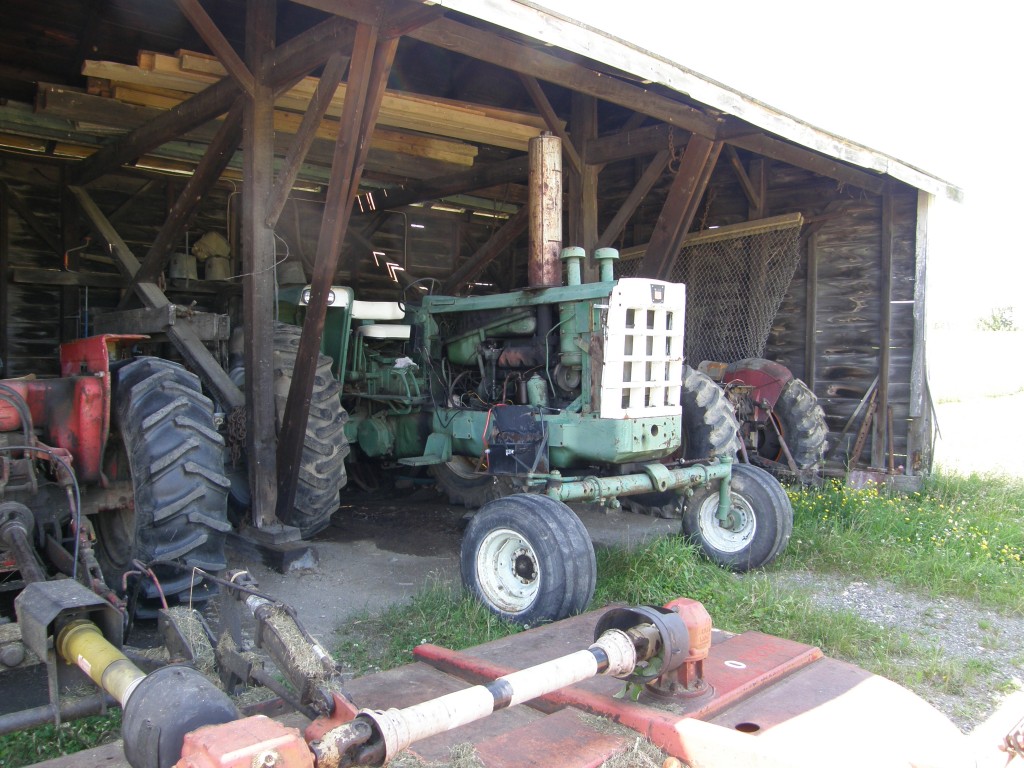The skyrocketing price of agricultural equipment, the declining number of dealerships, and the increase in demand (in part due to the growing number of small farms), has left fewer options for buying affordable equipment. The search for great deals has created competition for equipment that may make many purchases less than a great buy.
No matter what size operation you have, every penny counts. You need to do your homework before you buy. Everyone thinks about getting the best deal, but people don’t often think about how a piece of equipment will make their operation more efficient or increase income. Plenty of small farms purchase undersized or oversized tractors because they are cheap. How many extra hours do you have to spend with undersized equipment? How long will something last if you are consistently running it at full capacity? How much fuel is a larger tractor going to consume? It’s costly when your new tractor is too large or powerful to run your old, antiquated equipment, or burns it up. Equipment needs to be appropriately sized now, and able to meet your need as you grow. Carefully consider the piece of equipment you should purchase. A new tractor may seem nice, but a new mower may help you cover more ground or save time for other jobs.
There are a few things to contemplate when you are thinking of buying used equipment.
- Do your homework. Determine what piece of equipment you need most and what size will be the most efficient for your operation including the cost of labor, fuel, and repairs.
- Review your budget to determine what you can spend. Will your current operation pay for it or can you make enough extra with it to justify the cost?
- Know the market. Browse adds, check dealerships and online to get an idea of pricing. If possible, find several options to buy and take the best deal. Timing is important. Don’t buy items at the peak of demand.
- Know where it came from. If you’re buying it from a farm or individual, what does the rest of the equipment or operation look like? If it’s a dealer, why is it on the lot? Have they done any repairs? Is there any warranty? Buying online may seem like a good idea, but it’s hard to change your mind when it gets to your yard.
- Determine if the equipment is cheap because it is worn out or too costly to repair. Do a very thorough inspection. Look for new welds, leaks, cracks, breaks, or shiny new parts. Start it up and run it for a while. If possible, use it a little.
- Don’t impulse buy. Keep your emotions in check while looking the equipment over or talking money. Overexcitement leaves little room for negotiation.
- Be careful of the great deal. It may not be such a deal if you have costly repairs shortly after you buy it.
- Don’t believe everything people tell you. Be an informed buyer.
Even with high replacement prices, keeping old equipment around can be more costly than buying new. All too often, farmers nurse along old equipment because they perceive it as being cheaper without realizing they could easily use that same amount spent on repairs on monthly payments. Not to mention all the efficiencies they can gain from upgrading.
For more information on farm business topics contact Kirk Shoen, Cornell Cooperative Extension of Rensselaer County at (518-272-4210) ex 113 or kjs264@cornell.edu.


